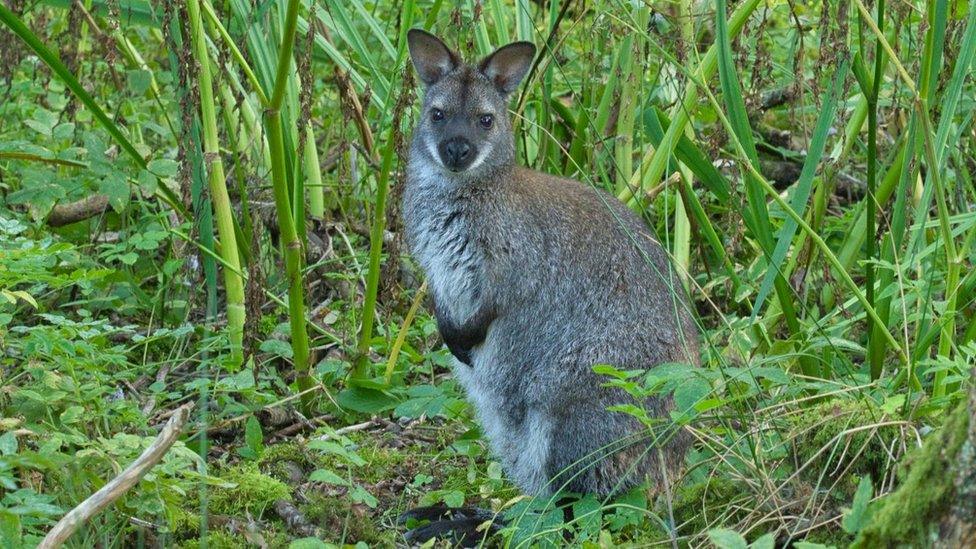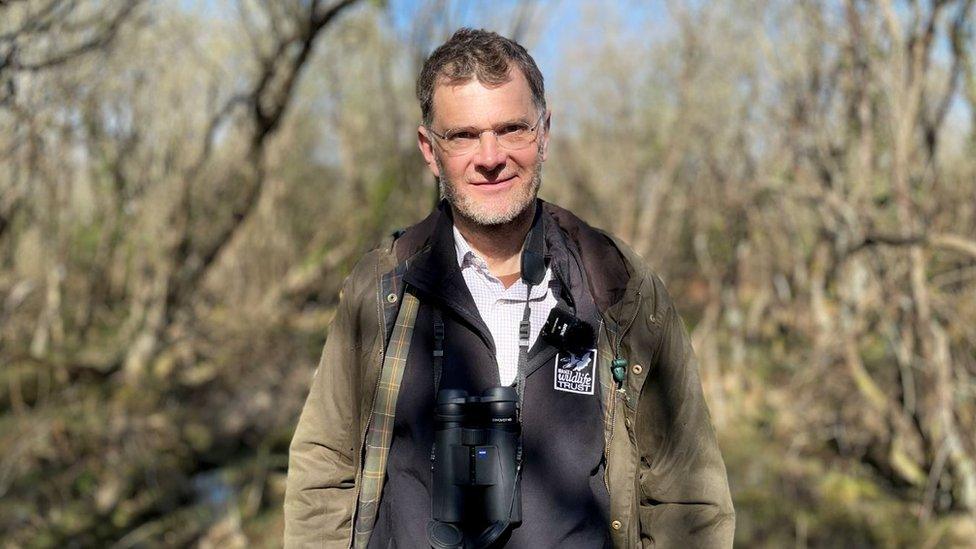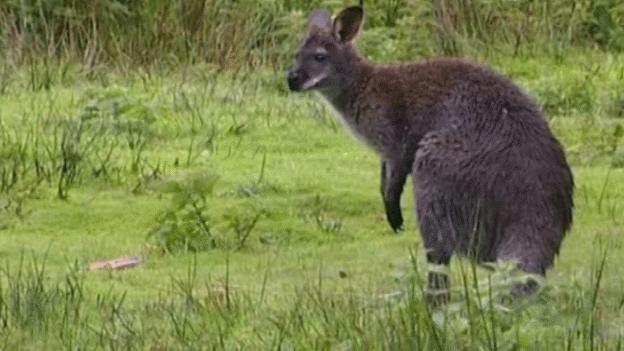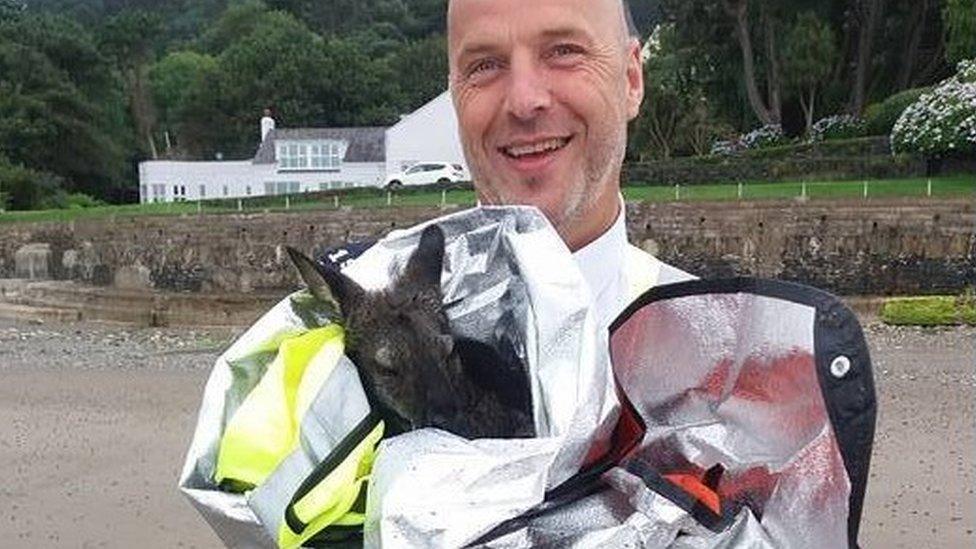Proper evidence key to Isle of Man wallaby policy, says charity
- Published

Wallabies escaped from the Curraghs Wildlife Park in the north of the island in the 1960s
Any decision over the future of the Isle of Man's wild wallabies needs to be based on "proper evidence", the Manx Wildlife Trust (MWT) has said.
A study of the marsupials' population size and impact is being carried out before a control policy is set.
MWT CEO Leigh Morris said there was a "whole load of things that we do not know" about the non-native species.
It comes as animal rights organisation PETA has urged the government to find "humane ways" to manage the population.
More than 100 are thought to live on the island after several escaped from a wildlife park in the 1960s.

Leigh Morris said the study would provide the evidence needed for any future management policy
In a statement, PETA said it had written to the Department of Environment, Food and Agriculture (DEFA) to advise against culling, which "only causes animal suffering", adding other non-lethal control methods could be used.
These included changing the animals' habitats through exclusion and repellents, or using contraception or sterilisation programmes, the charity added.
DEFA is conducting the survey with the Manx Nature Conservation Forum to assess how many wallabies there are on the island and what damage they may cause to local wildlife.
Mr Morris said MWT, which is part of the forum, welcomed the study as it did not have the "money or capacity go out and do all the research that needs to be done to have a proper evidence-based position" alone.
While he said those "at the frontline of Manx conservation" did have concerns about the potential damage wallabies caused, it was "not strong enough to think they might be doing damage, we need to know that".
"Wallabies are lovely animals, but so are badgers, beavers, bison [and] elk. We do not let them run around the Isle of Man," he added.

Why not follow BBC Isle of Man on Facebook, external and Twitter, external? You can also send story ideas to IsleofMan@bbc.co.uk, external
Related topics
- Published30 March 2022

- Published15 March 2022

- Published7 September 2018
